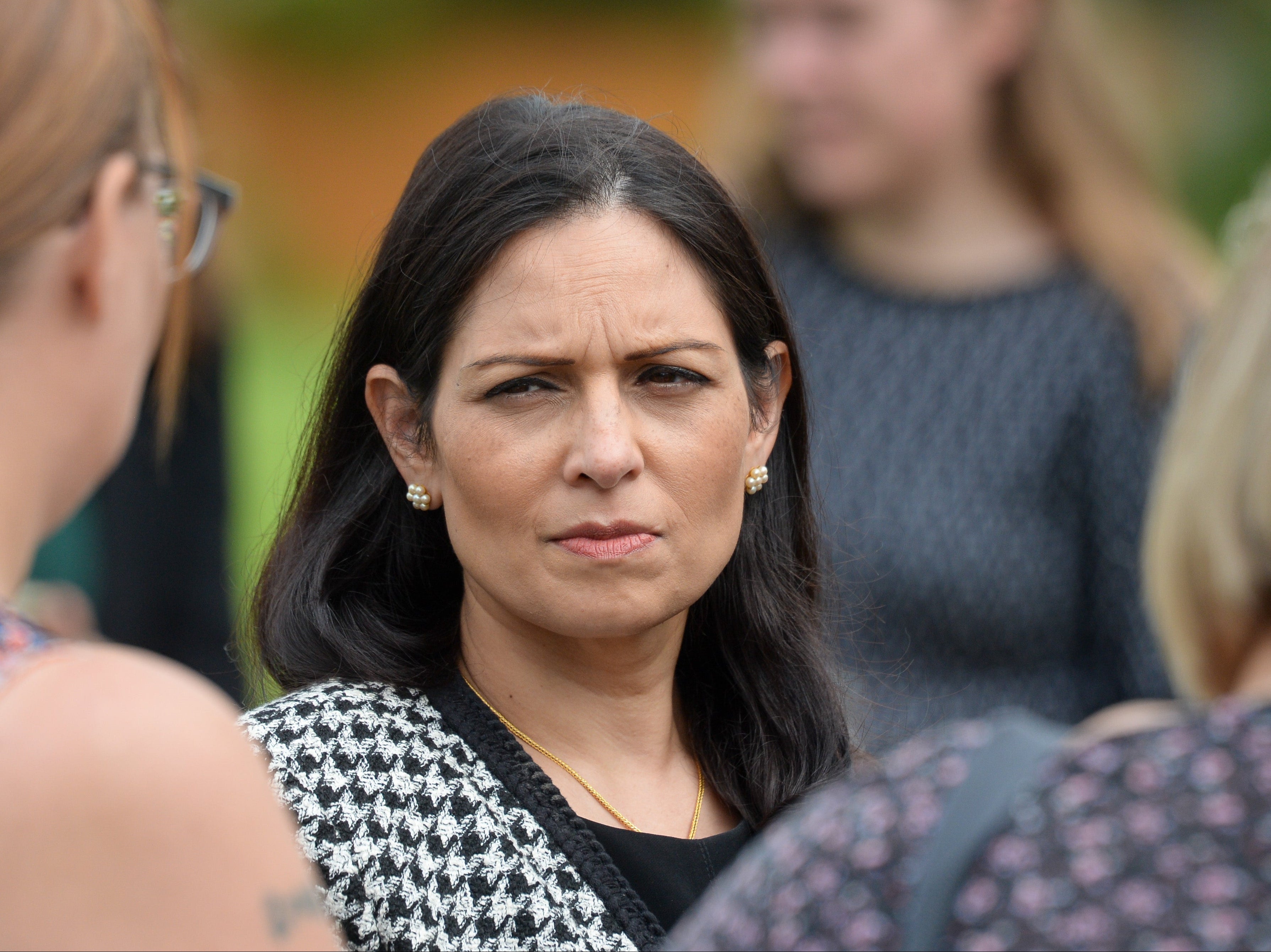The lesson to learn from the reshuffle? Critics underestimate Priti Patel at their peril
Patel’s allies claim she saw off cabinet rivals who would like to have seen her prised out of the Home Office, writes Andrew Grice


As he contemplated his reshuffle, Boris Johnson knew he had to move one of those in the cabinet’s three most senior posts – Rishi Sunak, Priti Patel or Dominic Raab – to avoid media criticism that his much-anticipated shake-up was a non-event.
Despite his veiled threat to move his chancellor, that was never seriously considered. Intriguingly, however, Johnson shuffled three of Sunak’s ministers out of the Treasury – a reminder, perhaps, of who is in charge. While Johnson will want to remain the tallest poppy, elevating Liz Truss to foreign secretary ensured Sunak is not seen as his only possible successor. All eyes at Westminster will now be on whether Sunak or Truss grows higher.
Some Tory MPs believed Patel would be ousted from the Home Office after under-performing in a high-profile post. Unusually, she keeps her head down for long periods to survive media squalls. She would probably have lost the job under a different leader. Johnson is frustrated about the number of migrants crossing the Channel in small boats – flashing red on his radar because the former Labour voters he won over in 2019 are alarmed by it – but decided not to punish Patel for a failure he saw as beyond her control.
He judged it was easier to move Raab who, unlike Patel, had few fans among Tory MPs and grassroots activists. Raab also made the choice easier with his handling of the crisis in Afghanistan – delaying his return from his Crete holiday and pulling Foreign Office staff out of Kabul before Johnson ordered him to send a team back. In contrast, Patel and the defence secretary Ben Wallace won praise for the UK’s evacuation operation.
Patel’s allies claim she saw off cabinet rivals who would like to have seen her prised out of the Home Office. Michael Gove wanted her job, or the Foreign Office. He got housing with lots of knobs on. Robert Buckland, the justice secretary and the cabinet’s last remaining traditional One Nation Tory, had clashed with Patel, who saw him as a block to her hardline reforms because the judges wouldn’t like them; he ended up with no job. Raab, Buckland’s successor, will likely take a tougher stance against the Human Rights Act than he did.
Other factors in Patel’s favour were her loyalty to Johnson and her anti-wokery. The prime minister’s allies insist he does not want to wage a culture war but the reshuffle belies that. Truss will be able to continue her anti-woke crusade as she kept her equalities brief, as did the promoted Kemi Badenoch, on top of her new responsibilities at the Foreign Office and Gove’s department.
Other culture warriors include Nadine Dorries, a surprise and risky choice as culture secretary and her predecessor Oliver Dowden, the new Tory co-chair. Some Johnson aides see a culture war as the Tories’ new cause after Brexit – uniting their party, delighting their activists and the right-wing press, diverting attention from the government’s performance and putting Labour on the defensive. But a divisive culture war would be totally at odds with Johnson’s professed mission for his new cabinet – to “unite” the whole country. When it met for the first time on Friday, he urged it to work as a team to ensure “delivery”.
With that in mind, among the junior ranks the most significant appointment was the impressive backbencher Neil O’Brien, who will work with Gove on levelling up. O’Brien’s white paper, due next month, will represent Johnson’s last chance to make his flagship policy work. If one lesson from the reshuffle is that her critics underestimate Patel at their peril, then the same is true of Gove. Those who hope he has been demoted – now he is no longer Cabinet Office minister with a finger in every department’s pie – will be disappointed. As well as the housing crisis and levelling up, Gove is responsible for keeping Scotland in the union. If anyone can turn the vacuous levelling-up slogan into a serious strategy, he can. The future of the red-wall seats will hinge on his efforts. But Whitehall insiders expect tension between him and Sunak over who is in charge of regional growth efforts.
The reshuffle was designed to tackle a sense of drift and doubts about what the government is really for rather than merely against. In some ways, the pandemic has provided a convenient cover for the lack of progress on issues such as levelling up, housebuilding and the record 5.5 million NHS waiting list, which stood at 4.4 million when the outbreak began and so can’t all be blamed on it.
With the Covid crisis hopefully reaching its closing stages, it is dawning on Johnson and his ministers that they will soon have no excuses for failing to deliver on their promises.



Join our commenting forum
Join thought-provoking conversations, follow other Independent readers and see their replies
Comments